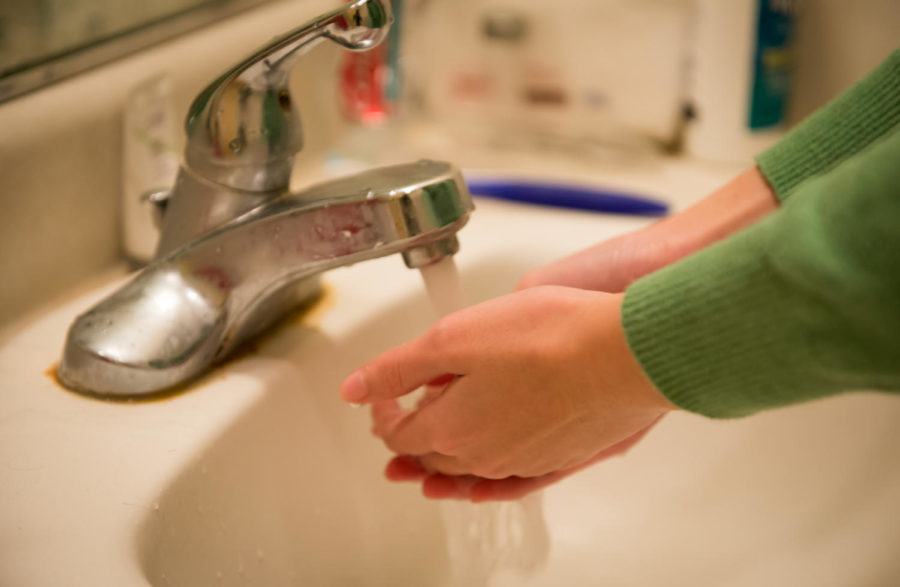Flu season descends upon Iowa State
Photo Illustration: Jen Hao Wong/Iowa State Daily
Hand washing is the number one way to fight any infection, a full 20 seconds equivalent to counting out the ABCs is recommended when washing. Hygiene of the surrounding area and everything you touch plays into passing illness.
November 21, 2013
Winter is the time of year when Iowa sees the flu in its highest concentrations.
Students are at higher risk because they don’t get out as much, and lack of activity can have an impact on the immune system, said Laura Knowles, nursing manager at the Thielen Student Health Center.
Nick Dilley, junior in business, tries to get out but spends a lot of his time during the week inside.
“I feel like during the school week, I spend more time inside, but over break, I’ll be out snowboarding a majority of the time,” Dilley said.
Doing something active during the winter is important, Knowles said. Even if students don’t want to walk to the gym, doing something like taking a walk and getting some fresh air will perk up the defenses their bodies have.
“The winter is cold and dry. People get easily dehydrated and don’t realize it, which decreases your immune system response, and that is our typical standard flu season as well,” Knowles said.
Knowles said other things like smoking and alcohol can weaken your immune system. She suggested eating more healthy foods and increasing clear liquids overall — especially water — and decreasing sugary foods or drinks.
“Eating healthy, three meals a day, decreasing your sugar intake, staying active and exercising automatically give you an edge because it increases your immune system,” Knowles said.
Effective at home remedies like saline nasal rinse, salt water gargle and hand washing more often also decrease the risk for bacterial infections and passing illness Knowles said.
Knowles said increasing hand washing is the No. 1 way to fight any infection.
“People think it’s kind of crazy, but you really should wash hands your hands for a full 20 seconds clear up to your wrists with your fingers interlaced under your nails, around your knuckles, around any jewelry,” Knowles said.
Common everyday surfaces like door knobs, desks, faucet handles, cellphones and the general hygiene of the surrounding environment can be the leading cause for the passing of illnesses around campus.
“If one person coughs in the lecture they affect everyone around them, and to think they go to their other lectures and do the same thing,” Dilley said.
Knowles said that when people cough or sneeze into the air, it takes about 3 to 4 feet for the average cough or sneeze before it starts to fall down toward the ground.
“So anyone who’s standing within that 3- to 4-foot range is likely to get exposed to germs just by closer contact,” Knowles said.
Staying active is something students can do to boost their immune system during the flu season, Knowles said. While at the gym, Knowles highly suggests students wipe down the equipment.
“I like to workout in the winter time to stay in shape for snowboarding. I feel that working out makes me feel more active, and it cleanses my body of any unwanted toxins,” Dilley said.
Another way students can prevent themselves and others from getting sick is getting the flu shot.
“Get your flu shot because some protection is better than no protection, and with the flu shot you protect other people as well,” Knowles said.
Knowles said that if someone gets a flu shot, it can protect those around them as well because of their immunity.
“I normally get my flu shot, but haven’t yet this year,” Dilley said. “It’s definitely something I do every year, and I plan on going soon.”







